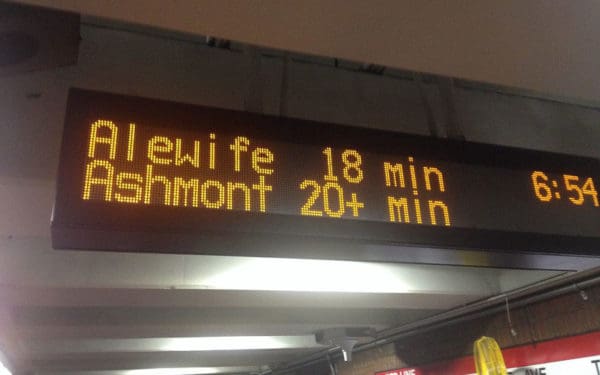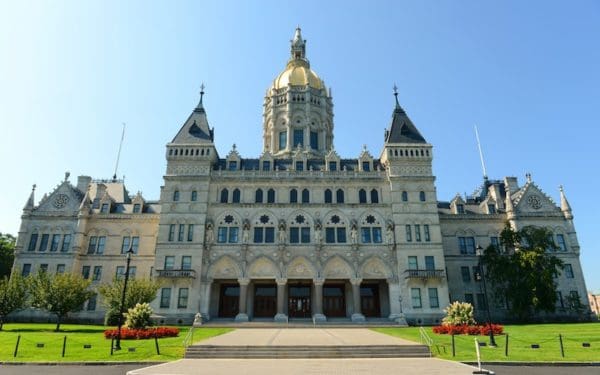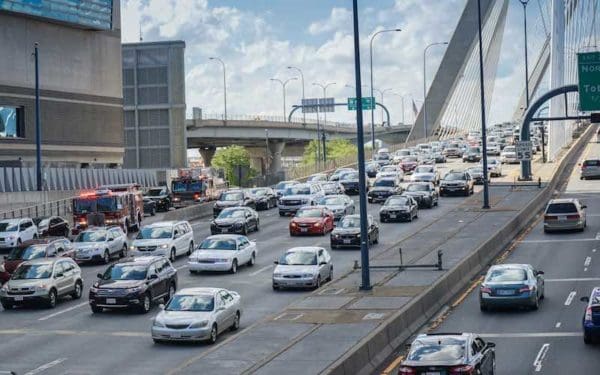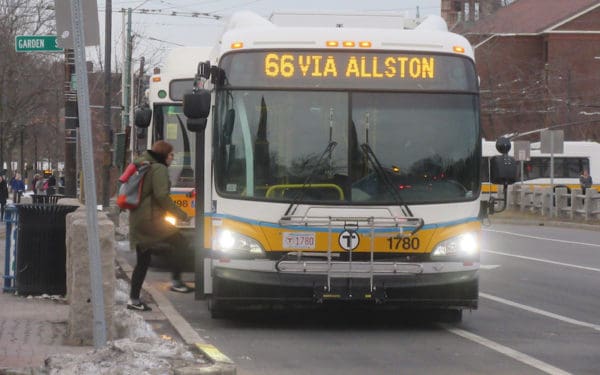Rhode Islanders Oppose Plan to Dismantle Its Largest Transit Hub
A plan to dismantle Kennedy Plaza in Providence has meet with strong and vocal resistance. Yet the State has failed to respond to concerns.

A plan to dismantle Kennedy Plaza in Providence has meet with strong and vocal resistance. Yet the State has failed to respond to concerns.

If you ride the MBTA to work or school regularly, then this scenario will sound frustratingly familiar. You rush to your bus stop or train station, only to find out that it’s delayed – often with little information on what happened or how long you’ll have to wait. When your bus or train does arrive, you… Continue reading MBTA Delays Undercut Access to Jobs and Economic Opportunity

“The actions announced today give Connecticut’s communities vital new tools to combat climate impacts,” said CLF attorney Shannon Laun. “We know this crisis won’t affect everyone equally, so the Governor’s focus on environmental justice and equity is absolutely critical. We’ll be pushing our leaders to go further by strengthening climate targets, adopting stronger vehicle emissions standards, accelerating the transition to electric vehicles, and rapidly phasing out fossil fuels.”

“TCI was never going to be enough to address the impacts and needs of the region’s transportation systems,” said Staci Rubin, Vice President of Environmental Justice at CLF. “Transportation is the largest source of planet-warming emissions in New England, and our current systems have overburdened communities of color with air pollution for decades. We must overhaul the way we move people and goods, and it must be done in a way that recognizes and addresses these historic inequities and brings everyone to the table in finding a solution. CLF will continue to work with impacted communities and our states to move that process forward.”

Connecticut, Rhode Island, and Massachusetts are considering bills to implement the Transportation and Climate Initiative – here’s what we’re working for in each.

As we continue to reckon with systemic racism in the United States, we must root out the quiet and insidious ways governments and decision-makers sustain racist policies.

In late July, Governor Baker signed a law that establishes a new, permanent board to oversee the MBTA. This is a huge win for communities and riders who depend on the T to get where they need to go, and it has the potential to lead to much-needed changes within the transit system.
Governor Charlie Baker has implemented a new permanent oversight board for the MBTA. The board will focus on the transit issues plaguing communities in eastern Massachusetts, and will be required to consider environmental justice issues.

“The era of kicking the can down the road at the MBTA is over,” said Staci Rubin, Vice President of Environmental Justice at CLF. “People in nearly 200 communities depend on the T to get where they need to go, and it’s time we get a reliable, affordable system that works for everyone. This bill will make sure that the oversight board understands the issues plaguing the MBTA and has the vision to create a better system for everyone.”

Over 40% of New England’s climate-damaging emissions billow from the exhaust pipes of our cars, trucks, semis, buses, and trains. We cannot solve climate change without cutting that pollution. And in the process, we have a unique opportunity to reimagine our region’s transportation systems as ones that are both affordable and accessible to everyone.
